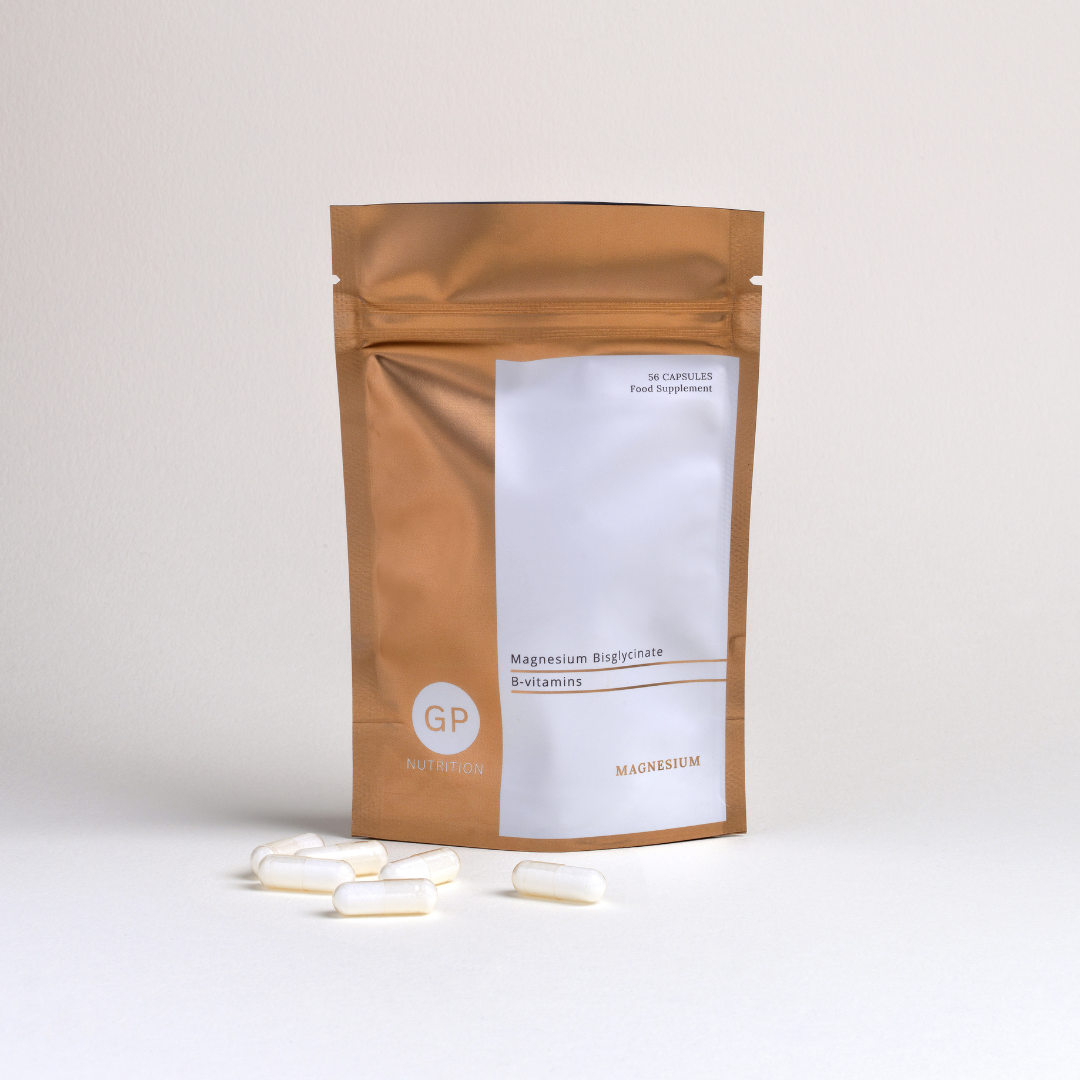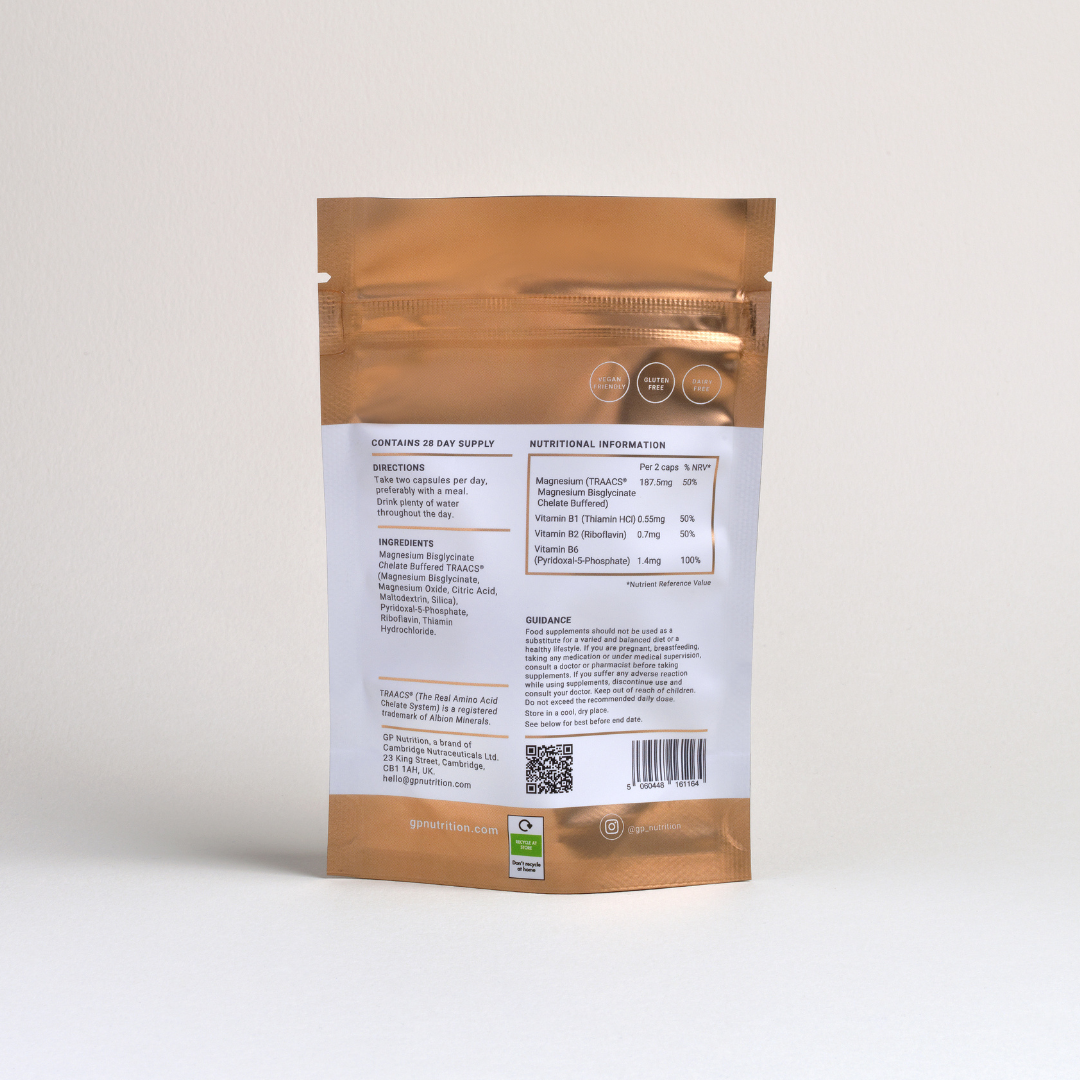
A good night’s sleep is a thing of beauty but is something many of us struggle with. Whether that’s a struggle getting off to sleep, staying asleep or waking up frequently during the night.
The body does a lot when we’re asleep - everything from growing muscle, repairing damaged tissue and producing hormones to supporting the cardiovascular system, the brain and metabolism. The better the body sleeps, the more efficiently all of this happens.
When we're asleep, the brain gets to work flushing out waste products and redundant cells that accumulate during the course of the day. One of the most important roles of sleep is allowing the brain to process and consolidate memories from the day's experiences, wiring and firing the neural pathways it needs for thinking and learning. When sleep is disrupted, it can result in poor concentration, low mood and the inability to retain and take in new information.
Let's explore the 3 wonder nutrients for aiding a good night's sleep.

Magnesium
Magnesium is known as nature's relaxant. It reduces anxiety, muscle spasms, and high blood pressure and has an amazing effect on sleep. Magnesium deficiency is very common, with up to 80% of the UK population not having enough in their diet.
Increasing magnesium improves sleep onset, length, quality and feeling refreshed in the morning. Aside from aiding sleep, the body uses a huge amount of magnesium for various other jobs. If sleep deprivation is an ongoing issue, trying to source it through diet alone would require eating large quantities of dark leafy greens to even touch the sides f the amount needed to help.
There are other ways to increase levels of magnesium in the body in addition to food:
- Supplementation: taken at any time of the day, but preferably mid-afternoon for optimal results as this will allow the body to relax for the evening.
- Food: dark leafy greens (kale, cavolo nero, chard), seeds (pumpkin, flax, chia), nuts, beans, chickpeas, lentils, grains (quinoa, buckwheat), dark chocolate (65-70% cocoa).

Tryptophan
Tryptophan is an amino acid found within protein. It is known for its ability to increase the production of serotonin (the happy and calming neurotransmitter in the brain) and assist the body's ability to not only fall asleep but stay asleep.
A bedtime snack including a protein source is a great way to increase Tryptophan in the body and aid a steady night's sleep. This could be a couple of spoonfuls of cottage cheese or live yoghurt, or a few slices of turkey or chicken.
- Protein: tofu, chicken, turkey (poultry), eggs
- Dairy: cottage cheese, live yoghurt
- Nuts and seeds: peanuts, sesame or pumpkin seeds

L-Theanine
L-Theanine is also an amino acid. It encourages relaxation and the ability to sleep by boosting levels of GABA, serotonin and dopamine (neurotransmitters in the brain that have a soothing effect). It is also known to reduce stress and anxiety - common symptoms of those who struggle to sleep.
Green and black tea are both great sources of L-Theanine but also contain caffeine. Replacing a cup of coffee with a cup of tea during the day is a great way to increase levels in the system without the disruptive effect of caffeine before bed. Alternatively, switching to decaffeinated tea in the evening allows you to retrieve the benefits before you sleep.





Leave a comment
All comments are moderated before being published.
This site is protected by hCaptcha and the hCaptcha Privacy Policy and Terms of Service apply.